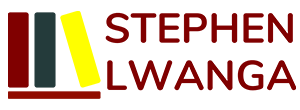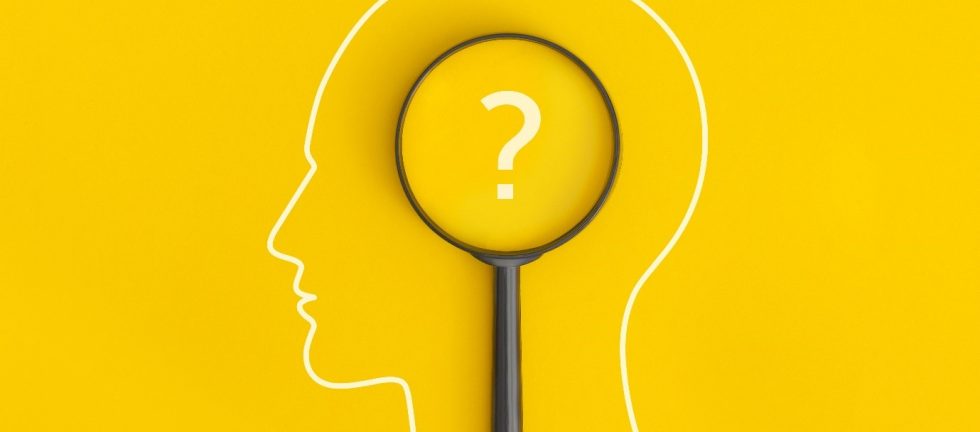Self-reflection on one’s purpose in life can be a profound, unsettling, and introspective journey. It involves exploring your values, passions, and the meaning you ascribe to your existence.
One’s purpose in life may be assessed by strengths and natural talents and how they are used. As you search for an understanding of yourself, you should start answering questions on how you want to affect the lives of those around you and in what ways you want to contribute to your community or society.
A search for one’s self-understanding includes examination of the kind of legacy one wants to leave behind. Understanding your life’s purpose often involves identifying your core values and beliefs. Issues touched on in my musing on Who am I?
I do not believe our purposes in life are preordained at birth. They evolve as we go through life and adapt according to existing conditions. You should be open to adapting your purpose as situations and priorities evolve, and ready to revise your goals in response to personal growth and changing life setting.
I won’t go into connections to higher life or how spirituality, or a sense of purpose beyond the individual, are claimed by some people to be factors in their pursuit of reason to exist.
A search for one’s purpose in life should be informed, in part at least, by past experiences, both positive and negative. Past experiences can be good lessons in shaping one’s future actions and purpose.
In my musing over work and employment I define legacy as the life footprint we leave behind. We may ask how reflecting on one’s purpose in life impacts on one’s legacy. We are likely to find a few instances where legacy is affected by this self-reflection. We do not normally set out to create a legacy, but it evolves from what we do in life. Just as we do not set out to leave footprints on the physical path, but the footprints are established as we walk towards the goal of our journey, so is legacy and life’s objective.
If your intention in life involves making a positive impact on people’s lives, your legacy may manifest in the relationships you build, the support you provide, and the difference you make in the lives of others. If part of your purpose is to educate or mentor others, your legacy might be the knowledge and guidance you pass on to those who follow your track.
On a wider scale, if you feel that your reason to exist is to improve the society you live in, your legacy could be seen in the contributions you make to address societal issues or advance a particular societal issue such as climate change.
For people whose target in life is promoting deep connections to family and relationships, their legacy may be reflected in the values, traditions, and close-knit connections fostered within the family.
If your purpose involves innovation and creativity, your legacy may be evident in the ideas, inventions, or artistic creations you leave behind.
A role in life centered around philanthropy or giving back to society, can result in a legacy seen in the charitable contributions, and support for humanitarian causes and positive impact on communities.
Embarking on a self-search to discover oneself can have several positive impacts on others. Sharing your journey of self-discovery and the pursuit of purpose can serve as an inspiration to others who may be grappling with similar questions. It can motivate others to embark on their own paths of self-reflection.
Demonstrating a commitment to personal growth and purposeful living sets a positive example for others, especially family members, friends, and colleagues. People around you may be encouraged to follow your example of self-discovery and inspired to pursue their passions.
If your purpose involves contributing to the community or society, your actions can have a direct impact on others. Engaging in community service or initiatives aligned with your purpose can create a ripple effect of positive change. I see it daily in my Rotary life.
By openly engaging in a sincere and reflective exploration of your purpose, you not only enhance your own life but also contribute to a broader positive impact on the people and communities you interact with. Sharing the lessons learned and insights gained from your journey can create a supportive environment for others to embark on their own paths of self-discovery. This is one of the objectives of these Fork in the Road Blogs: Reflections on Life.
As we examine our roles in life, we are likely to discover that we have multiple roles which we must balance and integrate. This calls for identifying the roles that are most important and prioritizing them. We also must remember that priorities may change with time and situations.
Time management, allocating time to each role, is an essential element in balancing and integrating roles. Another important element is the delegation of tasks and responsibilities. I mused over this in the leadership episode. Trust others to contribute to shared responsibilities, lightening your load.
Don’t forget yourself as you become engrossed in serving others. Remember self-care for your physical and mental well-being. Your effectiveness in all your roles depends on how well you are, physically and mentally.
Certain roles in our lives may seem contradictory or create conflict due to contradictory expectations or responsibilities. Some of the examples are:
Balancing a demanding career with the responsibilities of parenting, as both roles may require significant time and attention. Aligned with this example is juggling the responsibilities of being a primary caregiver for a family member and pursuing personal goals or aspirations. Another could be conflict between roles offering personal freedom and independence with roles that demand expectations and norms of a close-knit community or family.
Another example may be facing a moral dilemma when, discovering wrongdoing by the employer within place of employment and deciding whether to report it to authorities (as whistleblower) or remain loyal to the employer. Different from the whistleblower vs company or institution loyalty, is the situation when one is advocating for social change and activism, while also working within a system that may not align with certain activists’ principles you are involved in.
There may also be conflicting demands as one balances the desire to assimilate into a new culture with the need to preserve one’s cultural identity and heritage.
These examples, and many others, highlight the complexities that can arise when individuals traverse different roles and responsibilities that may have conflicting demands and expectations. Managing
these contradictions requires thoughtful decision-making, compromise, and sometimes finding creative solutions to integrate different features of life.
Self-honesty is a foundational element in the process of identifying one’s purpose in life. It requires a genuine and truthful exploration of one’s inner self, including strengths, weaknesses, values, passions, and goals. It involves breaking away from external influences or societal expectations and pursuing what genuinely brings joy and fulfillment. This has nothing to do with the purpose is positive or negative. Self-honesty requires clarity regarding short-term and long-term goals. Individuals need to be truthful about what they want to achieve in life. This clarity aids in setting purpose-driven goals that contribute to the overall sense of meaning and fulfillment.
It requires individuals to be open and truthful with themselves about their strengths, weaknesses, desires, and fears. Identifying weaknesses doesn’t diminish self-worth but provides opportunities to overcome the weaknesses. Recognizing where there is room for improvement is a key aspect of self-awareness.
Self-honesty involves exploring and acknowledging one’s core values and beliefs. It’s important to distinguish between is expected by society and personal convictions of what you are or want to be.
Self-honesty, being honest to oneself, in identifying one’s purpose in life can be likened to being an auditor of one’s life.
Remember, the quest for self-discovery is ongoing and may evolve over time. Your role in life doesn’t have to be grand or fixed; it can be a dynamic and evolving piece of your life. Embrace the journey of self-discovery and allow yourself the flexibility to adapt as you learn more about yourself and the world around you.
Thank you for being part of the Fork in the Road Blogs: Reflections on Life. Be sure to look out for the next episode when I will be writing about Happiness. If you gathered something useful, please feel free to share the blog. My books, Fork in the Road: Creating a future of value starting from where you are and A view round the bend. Setting goals for your life’s journey are available for purchase at Aristoc bookshops in Kampala, Uganda and online at Amazon.
Your comments on my musings are most welcome and let me know whether there is a topic you would like me to muse over.


Comments (6)
Joseph Tinka
Thanks SL. Interesting read.
Self-reflection is an organic way of finding one’s sense of purpose. People have found purpose after experiencing hardships (akin to ‘past experiences ‘ as you put it). Many founders of NGOs fall in this category. Ms Noreen Kaleeba of TASO comes to mind.
Be that as it may, finding a purpose of life is anything but simple. It is a journey with ups and downs. Overwhelming demands of life can derail one’s purpose of life.
How does one get back on track?
Rtn Stephen
Your comments, JT, enrich my musing. You cannot get back on track without thorough self-assessment to identify where you got off track.
Sheba Lwanga
Thank you so much for this very deep writing Uncle, I found it so empowering. I absolutely loved what you said about doing an honest self-assessment and self-reflection. We hear a lot about concentrating on our strengths, and I believe that it is very good advice. But I’ve also deeply learned that we cannot change what we don’t acknowledge, and I loved how you explained the importance of knowing our weaknesses so that we can look for ways to improve on them. That makes that honest self-assessment so crucial, because acknowledging our weaknesses is about knowing what’s not working, so that find ways to change that. This has helped me so much, and I am going to take your advice and do a deep and honest self-assessment so that I can have a clear picture of what I need to improve on. I appreciate that you wrote this…thank you so much!
Rtn Stephen
Muwala, thank you for the comments and I am glad the message I was communicating was received. Go through an honest self assessment and I am sure you will find it beneficial.
Read through the other blogs or listen to their podcast versions and post comments.
Zulu
Hello Sir,
Thank you for this.
Great read.
🙏🏿
Stephen Lwanga
A pleasure.